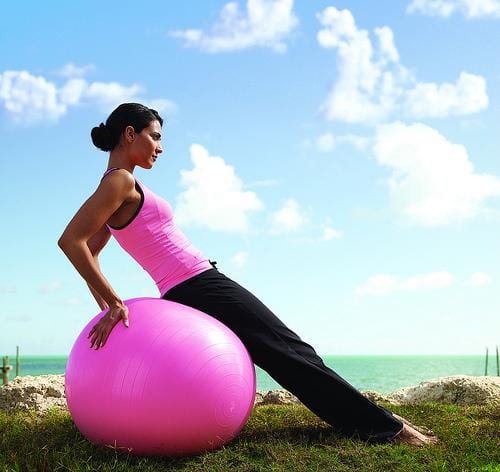High-protein diets have long been a standby of athletes who need to have long-lasting energy and build muscle quickly. Protein is necessary for muscle growth, but the first step in beginning a high-protein diet is making sure you know how much protein is right for you. Too much protein can have adverse health effects. Finding the right amount for your body size and activity level, then finding good sources of protein to consume along with complex carbohydrates, will result in a protein diet that will help you gain muscle mass.
Don’t Overdo It
The first step is finding out how much you need. Elizabeth Quinn, Sports Medicine writer for About.com, states that the normal recommendation for athletes is around 1.6 grams of protein per kilogram of body weight. A kilogram is roughly equivalent to 2.2 lbs. A 140-lb. (63.5 kg) woman who is working out regularly to build muscle should take in about 101.6 grams of protein per day. For those who are not working out or otherwise engaging in athletic activities regularly, the recommended protein amount is about 0.8 grams per kilogram of body weight. The same 140-lb. woman on a “normal” protein intake would need about 50.8 grams of protein per day.
High Protein, Low Fat
You do need calories and fat in your diet as you work out to build muscle, but you don’t need to get an excess amount of calories or too many of your calories from fat sources. Protein is easily obtained from dairy products and meat, but some of those sources are very high in fat and, though they may help you build muscles, may also increase your fat reserves. Look for good sources of lean protein in order to hit your target daily amount. Consider low-fat dairy options, such as skim milk, low-fat yogurt and low-fat cheese. And choose lean cuts of meat prepared in a healthy way: a skinless chicken breast, grilled, rather than a fried chicken thigh or drumstick; a round steak cubed and stir-fried with vegetables rather than a greasy hamburger; a pork loin chop seasoned and sautéed instead of ham or bacon. Beans and legumes are also wonderful, low-fat sources of protein.
Other Protein Sources
Other great sources of protein are nuts, nut butters and seeds. These are higher-fat options, but they have good fat, which your body needs in some amount. Quinn states that around 25 percent of your daily calories should come from fat sources. Make at least one of your high-fat protein sources one of your daily protein servings in order to meet your ideal daily protein intake.
Complex Carbohydrates
Protein is important, but carbohydrates will still be your main source of energy. Choose complex carbohydrates over simple carbohydrates, which give you a quick energy burst followed by a crash, or sugary foods, which give brief energy along with lots of empty calories. Fruits, vegetables, and whole grains are your best sources for complex carbohydrates. About 60 percent of your daily calories–more than half of your daily food–should come from complex carbohydrates such as those found in apples, pears, bananas, corn, cabbage, peas, bran muffins, whole-wheat bread and oatmeal.





